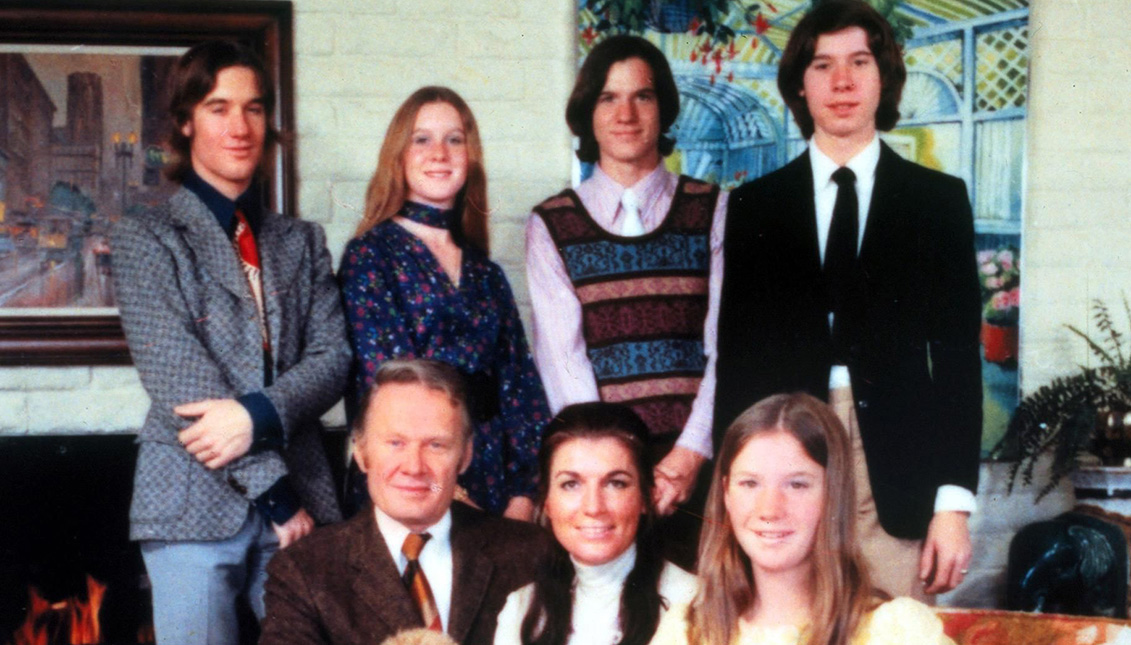
The Louds, the story of a family destroyed by a reality show
The first reality show in history, broadcast in 1973, was devastating for a Santa Barbara family that served as a guinea pig for an unprecedented sociological…
Reality shows are not a recent invention: the first of them, An American Family, began almost half a century ago, exactly on May 30, 1971, in the Californian town of Santa Barbara. The producer was Craig Gilbert, who went down in history as the driving force behind the first ever reality show.
The initial idea, to record four American families 24 hours a day, one from the East Coast, one from the West Coast and two from the South and North respectively, soon proved to be too expensive and ambitious, so the idea was reduced to With all of you, The Louds, focusing on a single family unit. The Ford Foundation and the Corporation for Public Broadcasting contributed $1.2 million to complete the filming of one family.
For seven months, a full sound and picture team followed the Louds' members from the time they got up until they went to bed. On January 11, 1973, the twelve one-hour episodes began airing, reducing the more than three hundred hours of continuous shots that had resulted from the sociological experiment. They premiered in prime time, at 9 p.m. The success was historic.
Although the programme aimed to move away from the stereotypes that had been fixed by the television series, a well-off family had been chosen that, in principle, had nothing special beyond its prosperity and its canonical image. However, viewers soon became aware of the cracks in such seemingly stable and uneven lives.
The seven members of the Loud family soon began to see their usual behaviors altered. First, they failed to act as if the cameras were not there, and sometimes tended to avoid the recording equipment. At other times, they would exaggerate their reactions to try to get attention. What became clear was that naturalness was conspicuous by its absence. However, to the ten million viewers who came to follow the broadcasts, all this did not seem to matter.
RELATED CONTENT
The break was difficult, because it meant no longer appearing on the screen. Lance Loud, the eldest son of the Louds, decided to come out and declare himself gay in public, making him the first person to do so in front of television cameras. Although the family knew and had accepted it, Pat Loud, his mother, was upset that she had to show that intimate face to the whole country.
But it wasn't the last or only bombshell on the set. Halfway through the series, Pat Loud got fed up with her husband's infidelities, who often traveled on business, and kicked him out of the house. Viewers accused the producer of having deliberately selected a couple in crisis, but Gilbert always denied it. It was the beginning of the end for the Loud family, which was soon crushed in the jaws of the television industry.
All sorts of obsessions were concentrated around the family: there was no end to the talk, in the most dramatic terms possible, of Lance Loud's homosexuality and the couple's divorce, which was accelerated by the show. The interviews, the media pressure and the clamorous success turned the Louds' life into something very different from what it had been until 1973. A doctoral thesis was even written about them.
The only one who made a success of it was Lance, who founded a band (Mumps) that enjoyed some success. He quickly became a point of reference for the gay community; the other children felt neglected, and did not accept their own image reproduced on the screens. Identity issues became increasingly problematic.
The Louds' story is a paradigmatic example of how an unexpected and excessive success can end a balanced life. Recent history provides us with dozens of stories of people who suddenly reach stardom and this ends up bringing them a host of setbacks. Let's not get into other stories. In the end, even Lance Loud did not end up well: he got hooked on drugs and later contracted the AIDS virus. That California family paid dearly for his prolonged exposure to the public.
Original story by Eduardo Bravo for Agente Provocador.











LEAVE A COMMENT:
Join the discussion! Leave a comment.